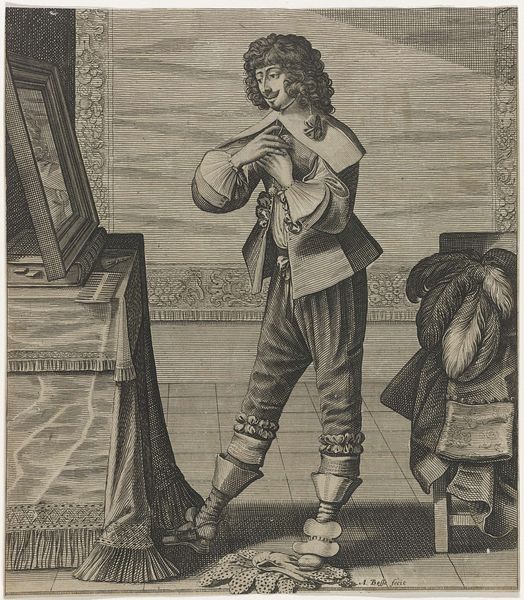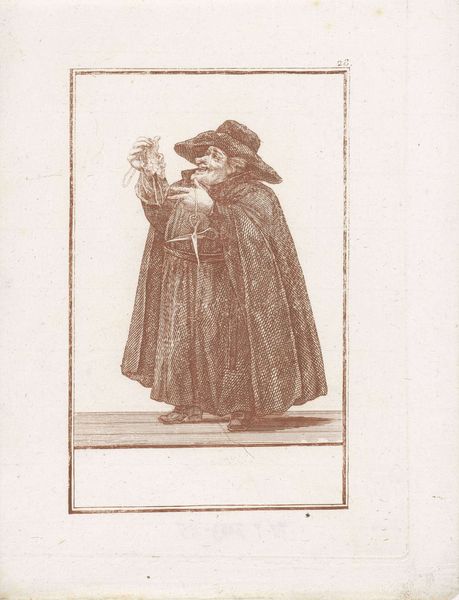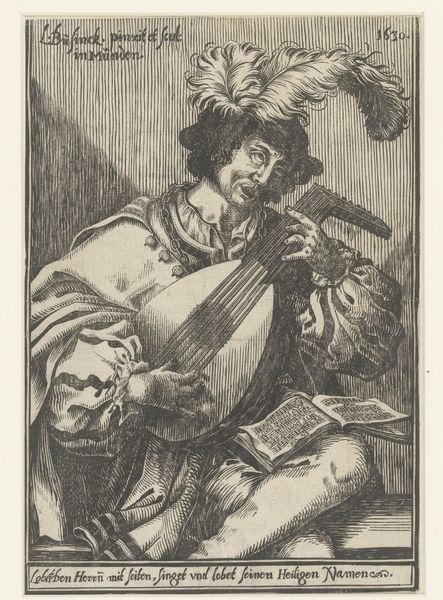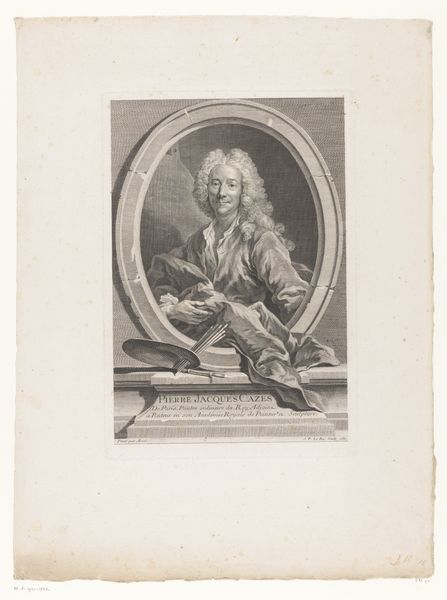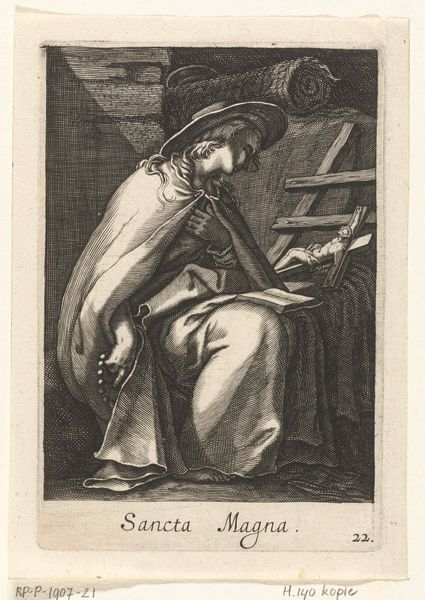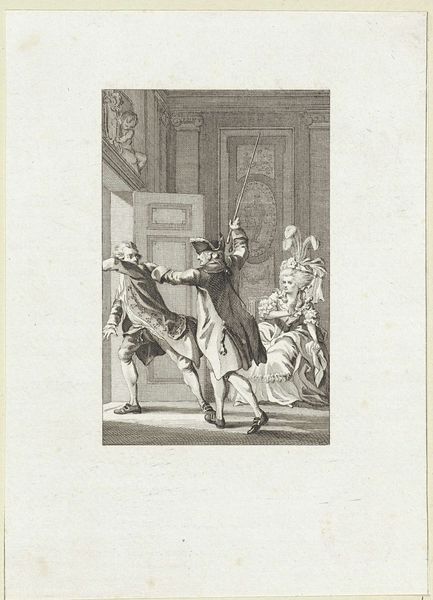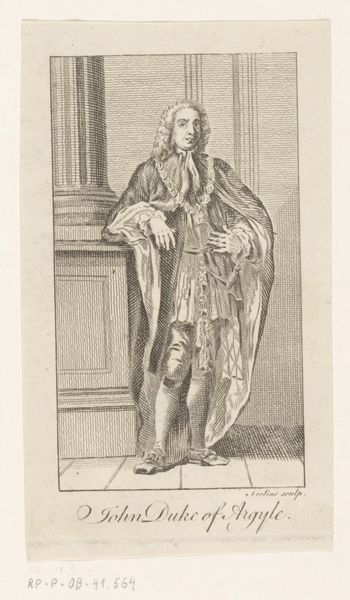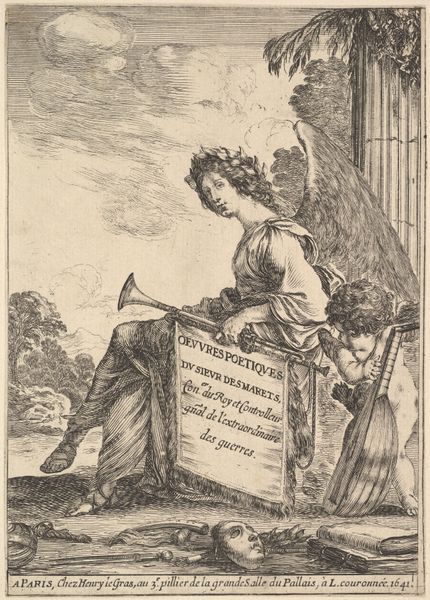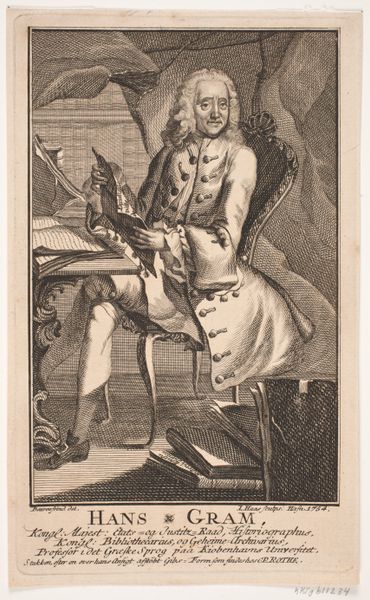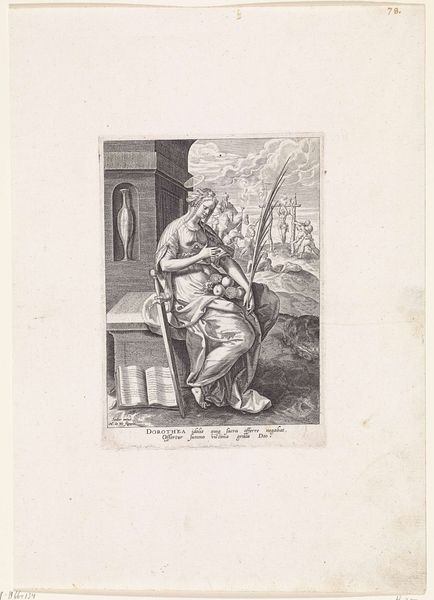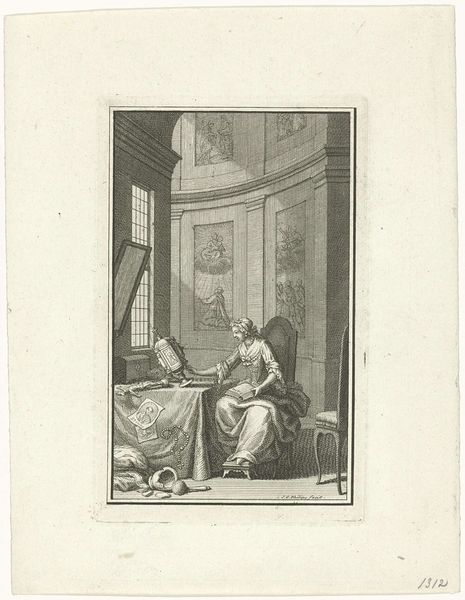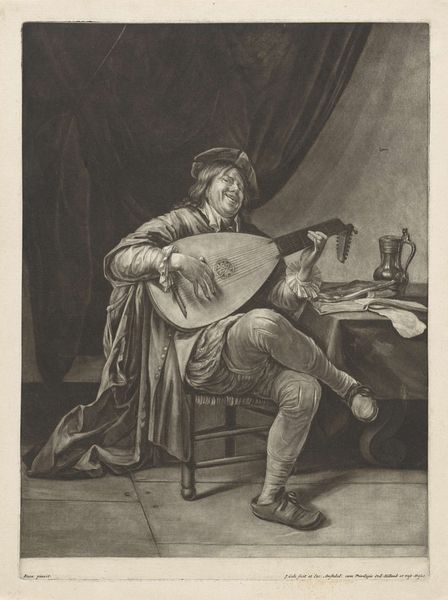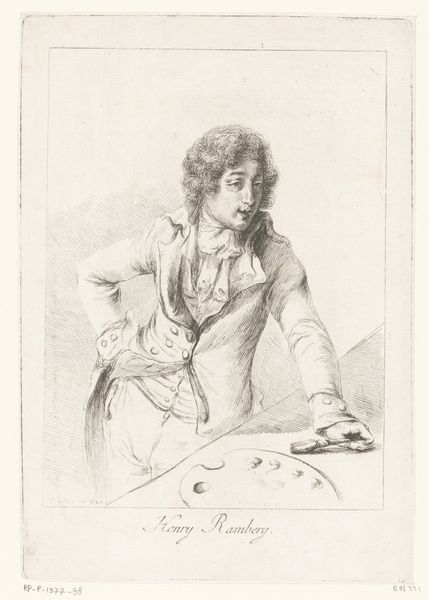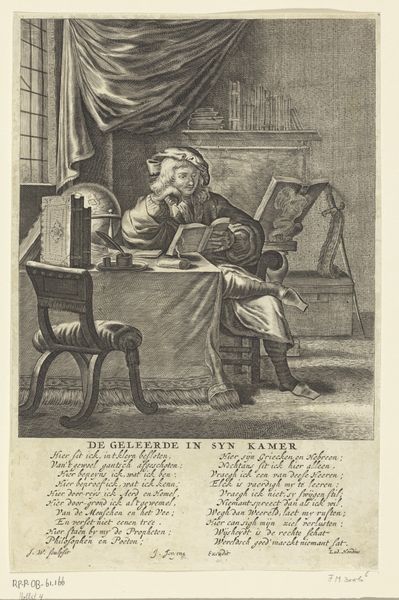
engraving
#
portrait
#
baroque
#
old engraving style
#
line
#
genre-painting
#
engraving
Dimensions: height 297 mm, width 192 mm
Copyright: Rijks Museum: Open Domain
This print, made in Paris in 1688, shows a man of quality in his study, and was likely made using an etching process. This involves coating a metal plate with wax, scratching an image into the wax, and then submerging the plate in acid. The acid bites away the exposed metal, leaving behind an image that can be inked and printed. Look at the crisp lines and fine details of the man's clothing and the objects in the room. These lines are achieved through the careful manipulation of the etching needle. The print is made from a series of tiny marks that come together to create tone, texture, and form. The etching process was a relatively quick and easy way to reproduce images, which made it an ideal medium for mass production and consumption. Prints like this one could be sold and distributed widely. This speaks to a growing culture of visual literacy and artistic expression in the late 17th century, and to the changing relationships between labor, art, and commerce. The image, reproduced through this method, challenges conventional notions of value in art and design.
Comments
No comments
Be the first to comment and join the conversation on the ultimate creative platform.
